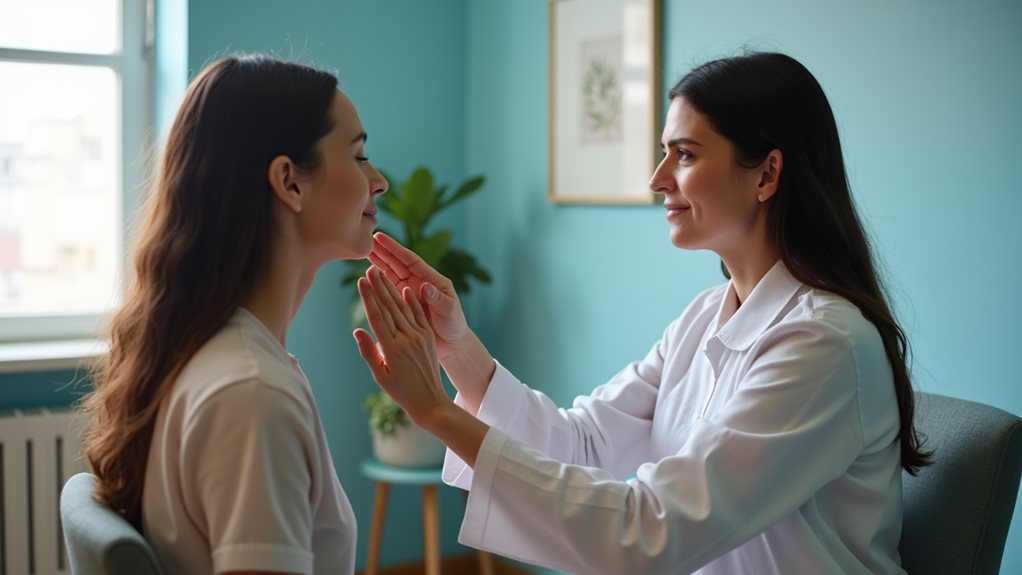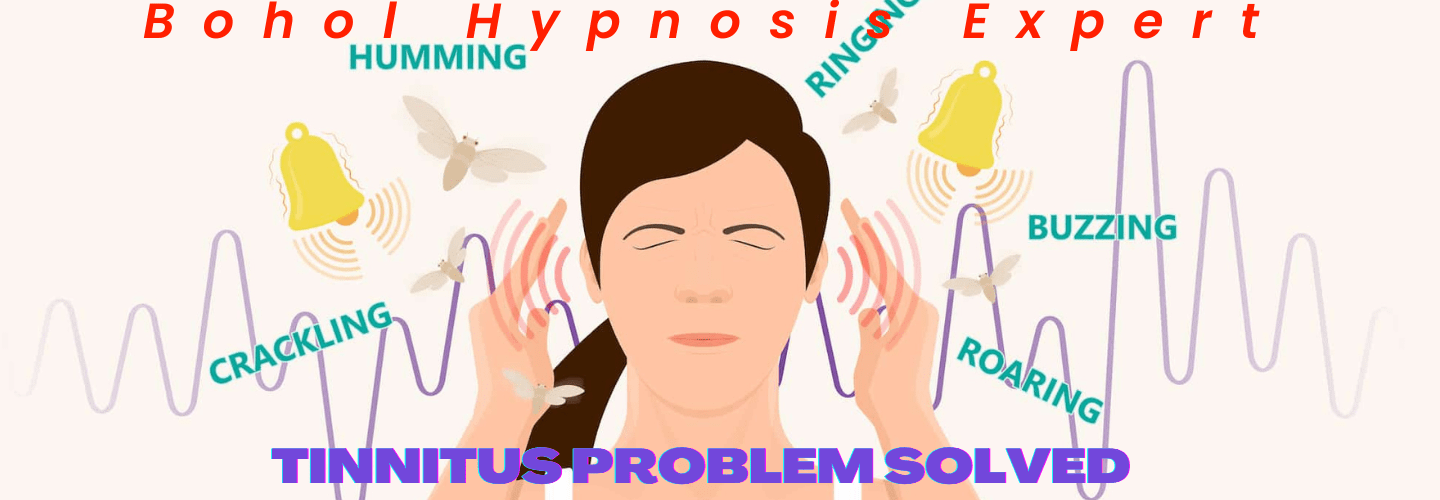
Conquering the fear of doctors begins with understanding the roots of medical anxiety and identifying personal triggers. Techniques such as hypnosis, Emotional Freedom Technique (EFT), and Neuro-Linguistic Programming (NLP) offer practical tools to alter negative perceptions and manage stress. Gradual exposure strategies also play an essential role in building tolerance to medical settings. Combining these methods can lead to a significant reduction in anxiety, enhancing cooperation and emotional well-being during healthcare interactions. Further exploration offers more insights into overcoming this common fear.
Key Takeaways
- Identify specific triggers of your fear to develop targeted coping strategies.
- Use hypnosis to safely explore and reframe negative perceptions of medical visits.
- Practice Emotional Freedom Technique (EFT) to manage anxiety in real-time.
- Employ gradual exposure techniques, starting with virtual tours of healthcare facilities.
- Implement Neuro-Linguistic Programming (NLP) to transform medical settings from sources of anxiety to places of healing.
Understanding the Roots of Medical Anxiety
Recognizing the roots of medical anxiety is essential, as it often stems from past negative experiences in healthcare settings. Identifying specific triggers, whether they are particular sights, sounds, or procedures, can be a vital first step toward recovery.
Understanding these triggers enables individuals to develop strategies for emotional regulation. Techniques such as deep breathing, mindfulness, and positive visualization can help manage these responses.
How Hypnosis Can Help You Overcome Fear of Doctors
Hypnosis offers a transformative approach for individuals grappling with a fear of doctors, enabling them to access their subconscious and alter deep-seated negative perceptions associated with medical settings.
Through targeted hypnosis techniques, patients are guided into a relaxed state where they can safely explore and reframe their anxieties.
Medical visualization, a key component, allows them to mentally rehearse positive experiences in a medical context, fostering a sense of control and calm.
This method not only diminishes fear but also empowers individuals to approach future medical visits with confidence, greatly improving their overall emotional well-being and cooperation during healthcare interactions.
The Role of EFT in Managing Medical Anxiety

Emotional Freedom Techniques (EFT) offer a practical approach for those struggling with medical anxiety, providing an immediate, accessible tool to manage emotional distress. By utilizing EFT techniques, individuals can engage in emotional regulation through simple tapping on specific body points, which is known to offer significant stress reduction. The tapping benefits include a decrease in anxiety and a sense of calm, particularly beneficial before and during medical appointments.
| EFT Feature | Benefit |
|---|---|
| Tapping on Body Points | Immediate stress relief |
| Emotional Regulation | Reduces anxiety and promotes calm |
| Self-Administered | Empowers personal control |
EFT provides a reassuring method to manage medical anxiety effectively.
Using NLP to Change Your Perception of Medical Settings
How can one transform their view of medical settings from places of anxiety to environments of healing? Neuro-Linguistic Programming (NLP) offers potent tools for this very purpose.
By employing NLP techniques, individuals can initiate profound perception shifts. Techniques such as the Visual Swish Pattern and Anchoring allow for the restructuring of negative associations tied to medical environments.
These methods enable a person to replace fear and discomfort with feelings of calm and control. This cognitive reframing is both empowering and reassuring, paving the way for a more positive and sustained engagement with healthcare experiences.
Strategies for Gradual Exposure to Medical Environments

Gradual exposure, often a cornerstone in overcoming fear, can be particularly effective for those apprehensive about medical environments.
By utilizing exposure techniques in a controlled manner, individuals can slowly build tolerance and reduce anxiety.
Strategies include:
- Starting with virtual tours of medical facilities online.
- Visiting a clinic during off-peak hours for a less crowded experience.
- Bringing comfort items such as a stress ball or a favorite book.
- Scheduling brief appointments to gradually acclimate to the setting.
- Accompaniment by a trusted friend for support during visits.
These steps encourage familiarity and comfort, easing the fear incrementally.
Combining Hypnosis, EFT, and NLP for Maximum Effect
Merging hypnosis, EFT (Emotional Freedom Techniques), and NLP (Neuro-Linguistic Programming) offers a robust framework for individuals grappling with a fear of doctors. These modalities provide a thorough approach to fear management by leveraging the unique strengths of each technique. Hypnosis techniques allow for deep subconscious healing, EFT benefits include rapid stress relief, and NLP applications help reframe negative thought patterns.
| Technique | Key Benefit |
|---|---|
| Hypnosis | Accesses subconscious |
| EFT | Alleviates immediate stress |
| NLP | Reframes cognitive responses |
This combination guarantees a holistic strategy, enhancing coping mechanisms and promoting lasting emotional resilience.
Tips for Maintaining Confidence and Emotional Health Post-Treatment

After successfully implementing techniques from hypnosis, EFT, and NLP to manage the fear of doctors, maintaining the newfound confidence and emotional health becomes the next step.
It is essential to engage in self care practices and build emotional resilience. Here are practical ways to continue thriving:
- Regularly practice mindfulness and meditation to sustain calmness.
- Establish a routine that includes physical exercise to enhance well-being.
- Seek ongoing support through therapy or support groups.
- Keep a journal to reflect on progress and emotional states.
- Set achievable goals to foster a sense of accomplishment and growth.
These steps guarantee lasting confidence and emotional health.
Frequently Asked Questions
Can Children Benefit From These Therapies for Medical Anxiety?
Children can benefit from child therapy techniques like hypnosis, EFT, and NLP to manage medical anxiety. These methods offer empathetic, reassuring support, fostering resilience and emotional well-being in young patients facing medical settings.
Are There Online Resources or Apps That Support These Therapies?
Various online resources and anxiety apps offer support for therapies like hypnosis, EFT, and NLP. These telehealth resources provide accessible, reassuring guidance for individuals seeking to manage their medical anxiety effectively and conveniently.
How Do Cultural Differences Impact the Effectiveness of These Therapies?
Cultural perceptions shape therapy effectiveness, as ironically, while all humans share fears, cultural nuances dictate therapy adaptation. Understanding and integrating these differences guarantees therapies are empathetic, informative, and reassuring across diverse populations.
What Are the Insurance Coverage Options for These Types of Therapies?
Insurance plans vary widely; some may cover therapy costs for treatments like hypnosis, EFT, and NLP, while others might not. It's crucial to consult with your provider for specific coverage details.
How Quickly Can I Expect to See Improvements in My Fear of Doctors?
Improvements in fear of doctors vary; exposure therapy timelines and gradual desensitization techniques suggest progress may be seen over weeks to months. Consistent practice and patience are essential for alleviating medical anxiety effectively.
Conclusion
The journey to overcoming medical anxiety can be likened to slowly peeling away the layers of a tightly bound rosebud. Each layer — whether it's through Hypnosis, EFT, or NLP — reveals a softer, more resilient inner self, ready to bloom in the presence of healthcare professionals. This transformative process not only eases the fear of doctors but also nurtures a lifelong confidence and well-being, allowing individuals to fully embrace their health without trepidation.





